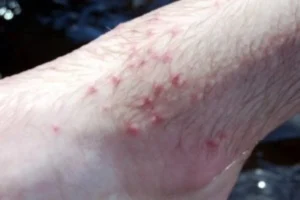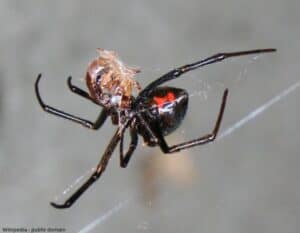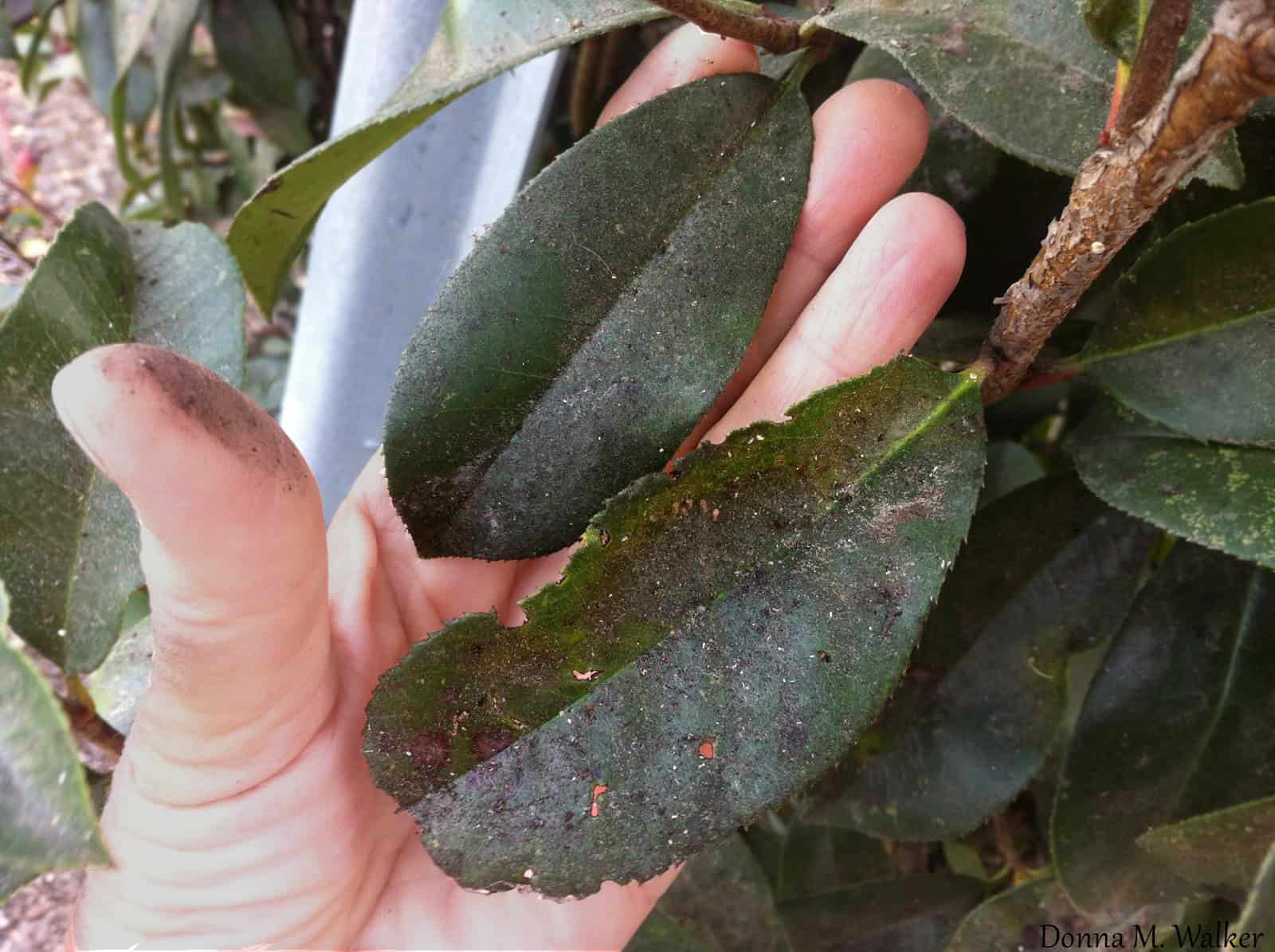
You may wonder why a pest control company is concerned about mold in your landscape and on your trees and plants … it’s because insects are the reason for the mold.
Plant sucking insects damage your trees and shrubs then excrete what they can’t digest in the form of sweet liquid called honeydew.
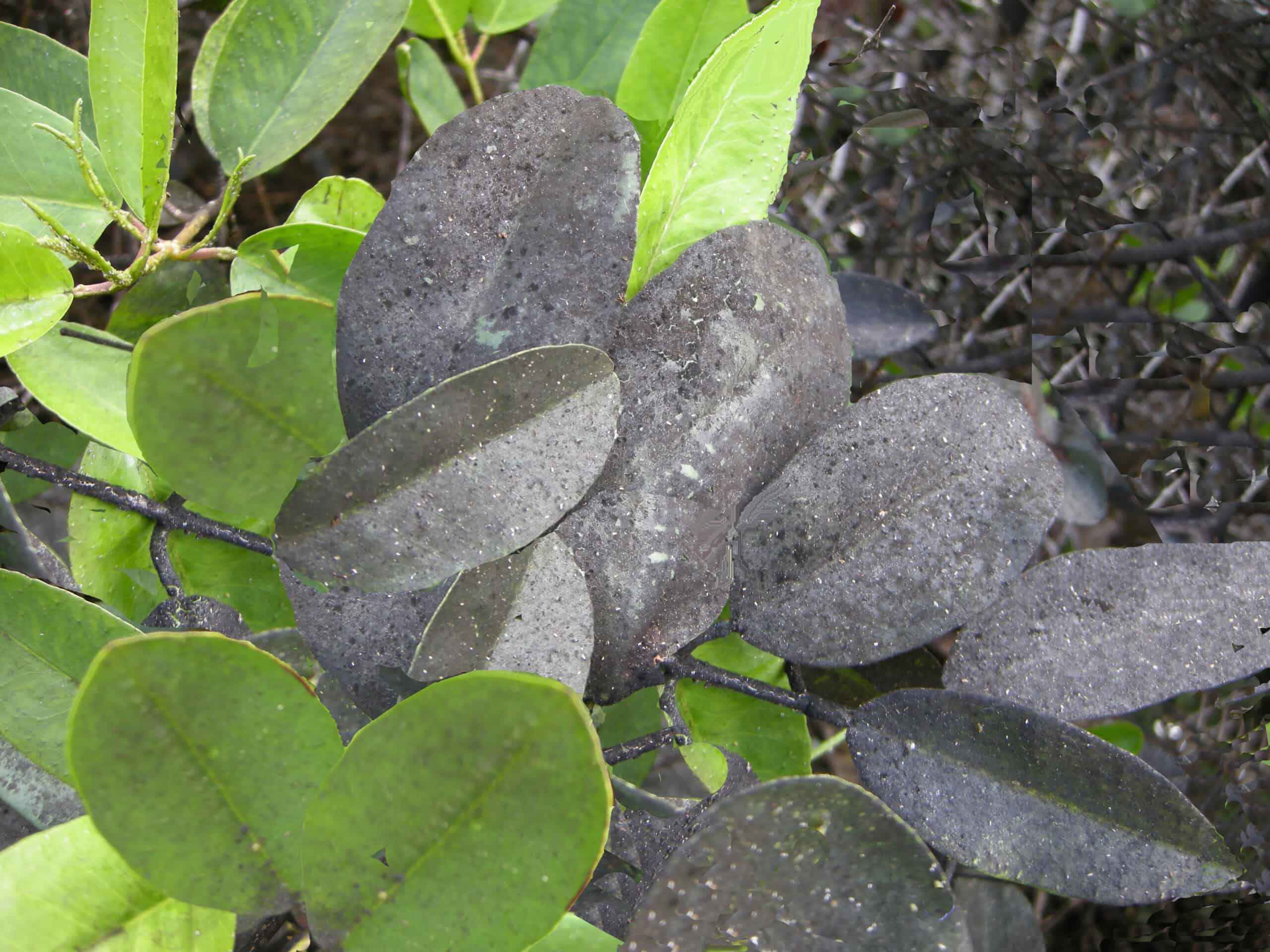
Black sooty mold is a common name give to various species of fungi that develop on plants and trees which are covered in honeydew.
Honeydew coats the leaves to the point that it reduces the ability for sunlight to penetrate causing photosynthesis to be reduced significantly.
Wherever there is honeydew, black sooty mold will grow and without photosynthesis, plants won’t grow; leaves age, and then die.
Some of the honeydew producing insects include: soft scales and mealybugs, aphids, leafhoppers, Psyllid, and whiteflies.
Farming for Honeydew
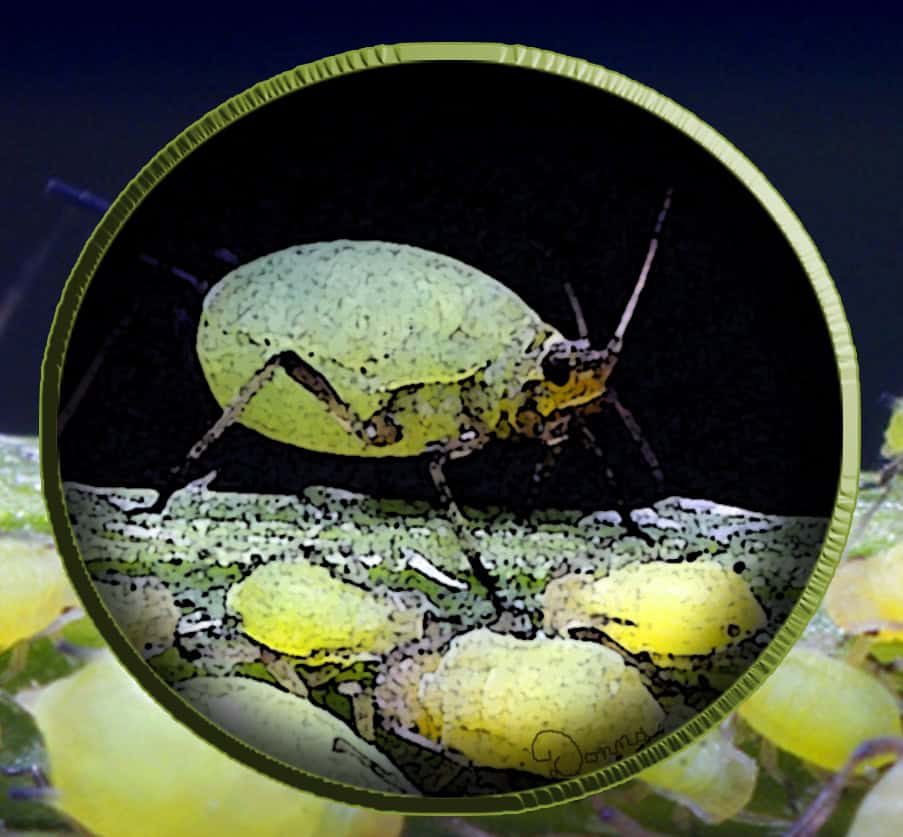
The biggest honeydew-making culprits are aphids. There are others but aphids have found protection from predators via ants.
Ever notice ants on your plants? Ants love honeydew. Turn a leaf over and you may see more ants milling about with a bunch of aphids. They’ve bonded and created a relationship that is beneficial for both insect families.
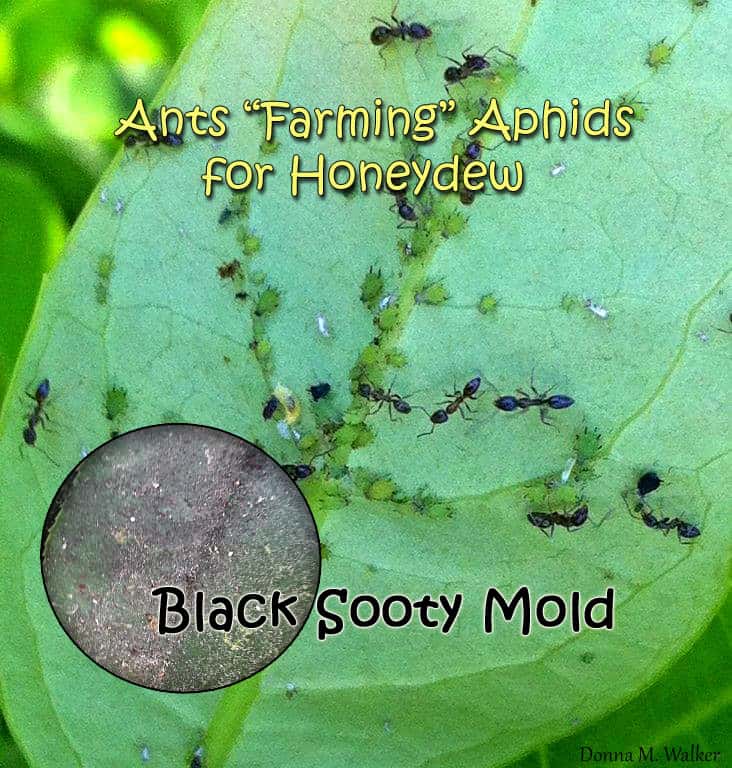
Aphids emit honeydew from their rear ends for ants to consume in exchange for protection from predators such as ladybugs, parasitic wasps, earwigs, and lacewing larvae.
Ants “farm” by herding aphids onto the underside of a leaf where the aphids can hide and be available to them for obtaining honeydew.
Honeydew makes plants sticky, allowing the growth of sooty mold.
Treatment for Sooty Mold
Black sooty mold = sucking insects. The first step to controlling sooty mold is to get rid of as many honeydew creating insects as possible.
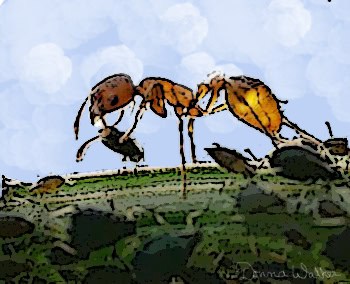
Most plants can tolerate a few insects and some sooty mold but if you have a lot of sap sucking insects, then you definitely need pest control.
Aphids are notorious for attacking new growth where leaves and stems are tender – when they eat, they excrete!
As part of our landscape maintenance program, Hearts Pest Management has both traditional and organic methods for treating insects that cause sooty mold to develop.
You can cosmetically remove the mold by spraying leaves with soap and water but to actually get rid of it you’ll need to treat the source – honeydew producers.
Hearts offers free landscape inspections. Call today to schedule an inspection and learn more about our treatment programs.

